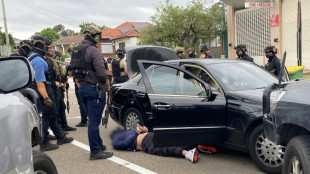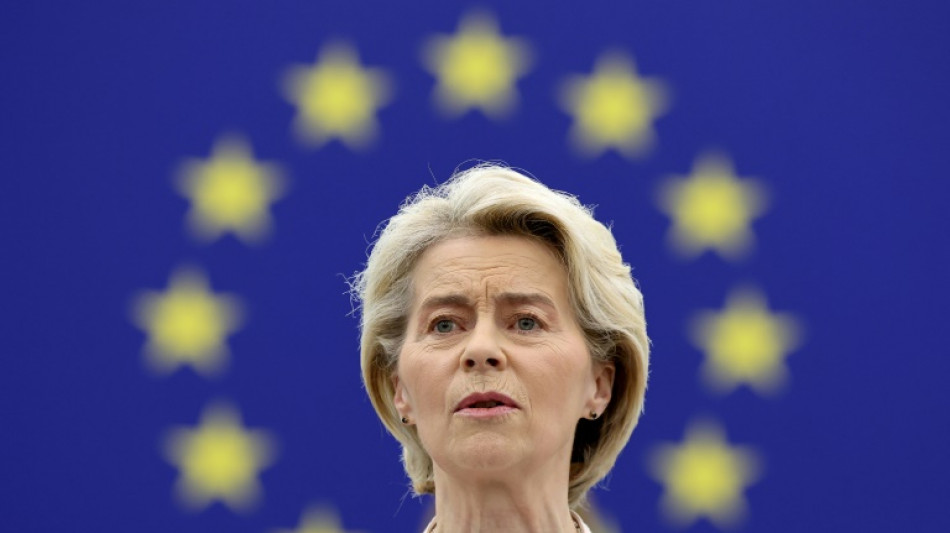
-
 Gold tops $4,000 for first time as traders pile into safe haven
Gold tops $4,000 for first time as traders pile into safe haven
-
Indian garment exporters reel under US tariffs
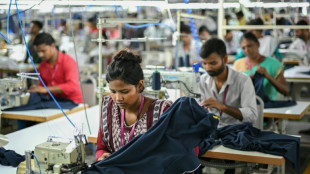
-
 NBA back in China after six-year absence sparked by democracy tweet
NBA back in China after six-year absence sparked by democracy tweet
-
Energy storage and new materials eyed for chemistry Nobel
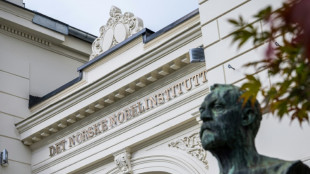
-
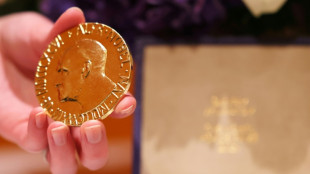 Trump unlikely to win Nobel Peace Prize, but who will?
Trump unlikely to win Nobel Peace Prize, but who will?
-
Qatar, Turkey to join third day of Gaza peace talks in Egypt
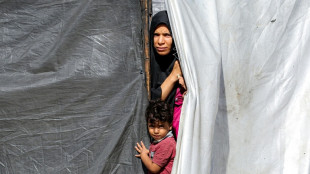
-
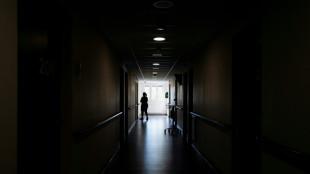 Study finds women have higher genetic risk of depression
Study finds women have higher genetic risk of depression
-
Dolly Parton's sister calls for fan prayers over health issues

-
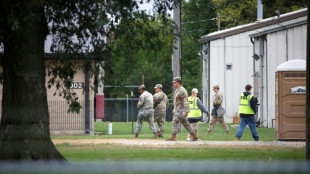 On Trump's orders, 200 troops from Texas arrive in Illinois
On Trump's orders, 200 troops from Texas arrive in Illinois
-
Two bodies found, two missing after Madrid building collapse
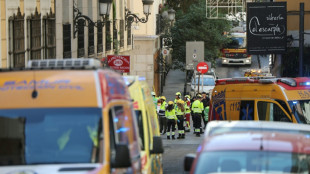
-
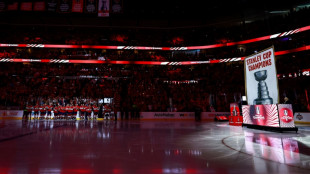 Panthers raise banner as NHL three-peat bid opens with win
Panthers raise banner as NHL three-peat bid opens with win
-
Nobel physics laureate says Trump cuts will 'cripple' US research
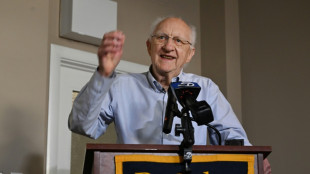
-
 UFC star McGregor suspended 18 months over missed drug tests
UFC star McGregor suspended 18 months over missed drug tests
-
Trump talks up Canada trade deal chances with 'world-class' Carney
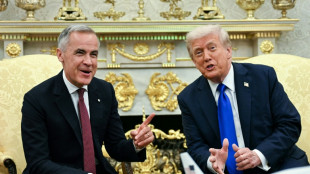
-
 Ecuador president unharmed after apparent gun attack on motorcade
Ecuador president unharmed after apparent gun attack on motorcade
-
Lyon exact revenge on Arsenal, Barca thrash Bayern in women's Champions League

-
 Trump says 'real chance' to end Gaza war as Israel marks attacks anniversary
Trump says 'real chance' to end Gaza war as Israel marks attacks anniversary
-
Gerrard brands failed England generation 'egotistical losers'
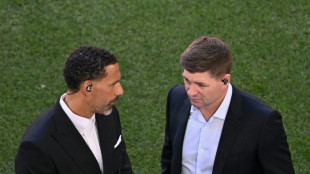
-
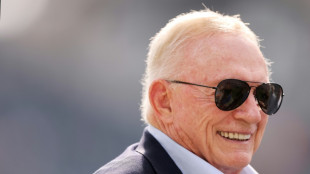 NFL fines Cowboys owner Jones $250,000 over gesture to fans
NFL fines Cowboys owner Jones $250,000 over gesture to fans
-
Bengals sign veteran quarterback Flacco after Burrow injury

-
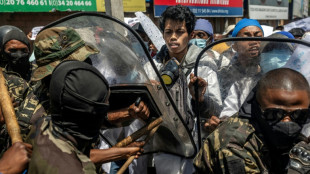 New prime minister inspires little hope in protest-hit Madagascar
New prime minister inspires little hope in protest-hit Madagascar
-
Is Trump planning something big against Venezuela's Maduro?
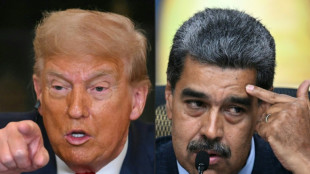
-
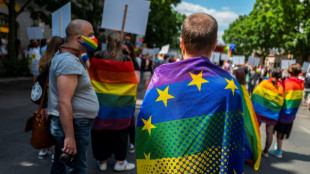 EU wants to crack down on 'conversion therapy'
EU wants to crack down on 'conversion therapy'
-
French sex offender Pelicot says man who abused ex-wife knew she was asleep
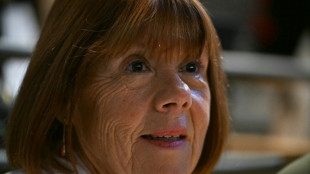
-
 Trump says 'real chance' to end Gaza war as Israel marks Oct 7 anniversary
Trump says 'real chance' to end Gaza war as Israel marks Oct 7 anniversary
-
UK prosecutors to appeal dropped 'terrorism' case against Kneecap rapper

-
 Spain, Inter Miami star Alba retiring at end of season
Spain, Inter Miami star Alba retiring at end of season
-
EU targets foreign steel to rescue struggling sector

-
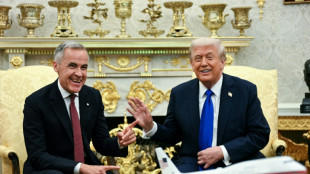 Trump talks up Canada deal chances with visiting PM
Trump talks up Canada deal chances with visiting PM
-
Knight rides her luck as England survive Bangladesh scare
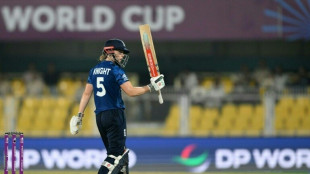
-
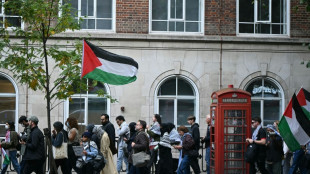 Pro-Gaza protests flare in UK on anniversary of Hamas attack
Pro-Gaza protests flare in UK on anniversary of Hamas attack
-
Top rugby unions warn players against joining rebel R360 competition
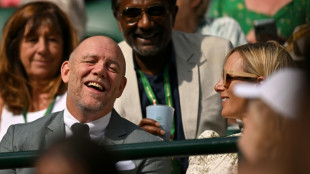
-
 Outcast Willis 'not overthinking' England absence despite Top 14 clean sweep
Outcast Willis 'not overthinking' England absence despite Top 14 clean sweep
-
Trump says 'real chance' of Gaza peace deal
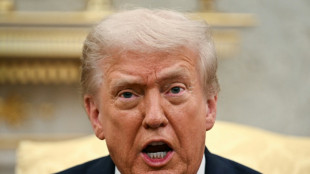
-
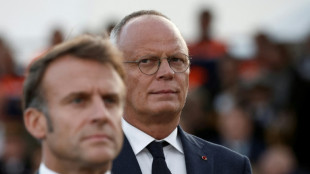 Macron urged to quit to end France political crisis
Macron urged to quit to end France political crisis
-
No.1 Scheffler seeks three-peat at World Challenge
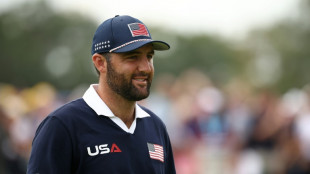
-
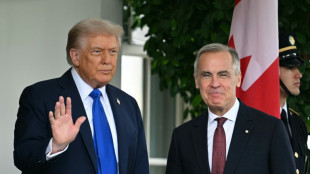 Canadian PM visits Trump in bid to ease tariffs
Canadian PM visits Trump in bid to ease tariffs
-
Stocks falter, gold shines as traders weigh political turmoil
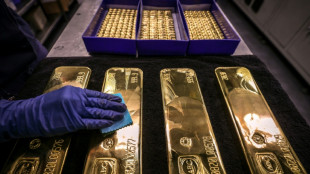
-
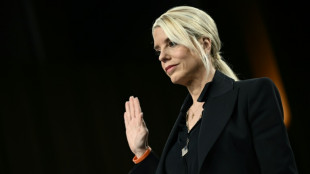 Senators accuse US attorney general of politicizing justice
Senators accuse US attorney general of politicizing justice
-
LeBron's 'decision of all decisions' a PR stunt
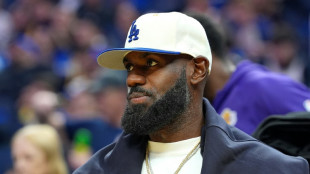
-
 Observing quantum weirdness in our world: Nobel physics explained
Observing quantum weirdness in our world: Nobel physics explained
-
WTO hikes 2025 trade growth outlook but tariffs to bite in 2026
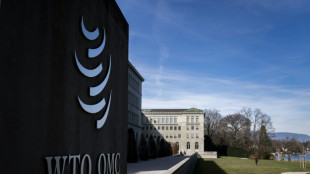
-
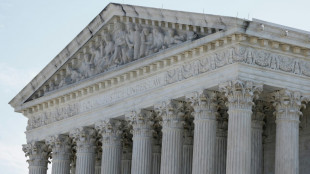 US Supreme Court hears challenge to 'conversion therapy' ban for minors
US Supreme Court hears challenge to 'conversion therapy' ban for minors
-
Italy's Gattuso expresses Gaza heartache ahead of World Cup qualifier with Israel
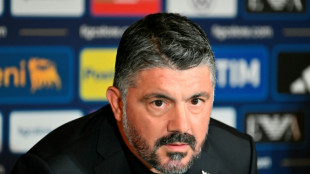
-
 EU targets foreign steel to shield struggling sector
EU targets foreign steel to shield struggling sector
-
Djokovic vanquishes exhaustion to push through to Shanghai quarterfinals
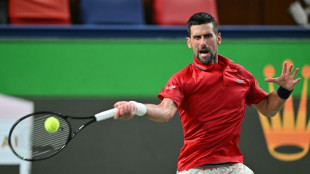
-
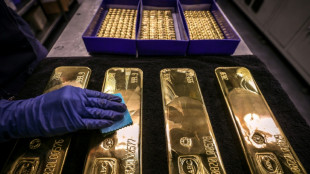 Stocks, gold rise as investors weigh AI boom, political turmoil
Stocks, gold rise as investors weigh AI boom, political turmoil
-
Swiatek coasts through Wuhan debut while heat wilts players

-
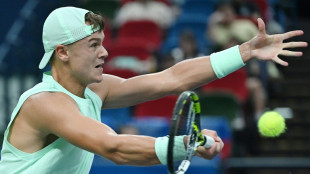 Denmark's Rune calls for heat rule at Shanghai Masters
Denmark's Rune calls for heat rule at Shanghai Masters
-
Japanese football official sentenced for viewing child sexual abuse images
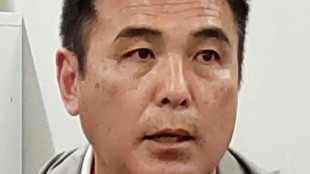

Judgment day in EU chief's Covid vaccine texts case
A top court is to rule Wednesday on whether the EU failed the transparency test by declining to release text messages sent by Ursula von der Leyen to the head of Pfizer as the bloc tried to secure Covid vaccines.
The case before the Court of Justice of the European Union (EUCJ) is seen as a test for the EU Commission president, whose governance has at times been accused of centralised and opaque decision-making.
At its centre are elusive exchanges between von der Leyen and Albert Bourla, chief executive of Pfizer -- which was chosen by the bloc as its main vaccine supplier at the height of the pandemic.
The New York Times, which revealed the existence of the messages, sued the commission in 2023 after Brussels declined to produce them following a freedom of information request.
The commission argued it could not find the texts because they had not been recorded and archived -- something it says is done only when the content is deemed "substantive".
"The commission never denied the existence of text message exchanges," an EU official said. "What it was argued... is that these exchanges did not contain important information".
The New York Times has asked the lower chamber of the Luxembourg-based EUCJ to quash the commission's decision not to hand it the messages. The verdict can be appealed.
- 'Maladministration' -
The EU moved swiftly after the Covid pandemic emerged in 2020 to secure vaccines for member countries to buy for their citizens and residents at a time of massive global demand for the shots.
But many aspects of the procurement from Pfizer have been kept confidential, leading to claims of a lack of transparency -- and several legal proceedings in Belgium and with EU courts.
"This case presents a very important issue: whether officials may evade public transparency by communicating via text messages rather than more traditional means," a lawyer for The Times, Bondine Kloostra, said in her opening arguments in November.
Lawyers for the 27-nation bloc have argued the private messages did not constitute part of the vaccine negotiation.
They might have involved side issues, such as von der Leyen and Bourla agreeing to speak on a certain day, at a certain time, they suggested.
Commission workers, including its chief, do not have an obligation to record all their emails, texts and instant messaging chats, as this would be "materially impossible", an EU official said.
Emails are automatically deleted after six months, he noted.
A duty to archive arises only when such messages contain important information that is not "short-lived" and relates to the commission's policies, activities and decisions.
Such assessment is done in the first instance by the person receiving or sending the texts, so in the case before the court by von der Leyen.
The commission's lawyer, Paolo Stancanelli, said in November that its services asked to track down the messages after The Times reached out to the EU chief's cabinet, which replied it was unable to find them.
In January 2022, the EU's ombudsman described this as "maladministration", saying the messages should have been subject to the EU's public transparency rules for official documents.
R.Flueckiger--VB

